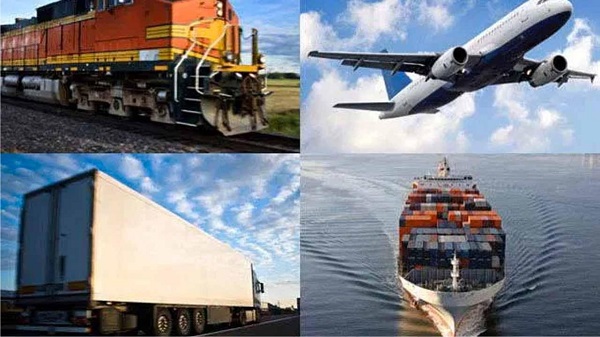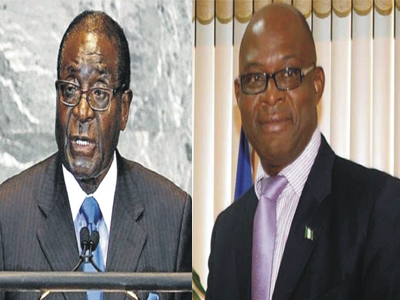VIN Valuation: Storage Charges Exceeds N500m, Protests May Resurface
By Kenneth Jukpor
Two weeks after protests over the e-evaluation process of Nigeria Customs Service (NCS) crippled port activities at the Tin Can Island Port, normalcy is yet to return at the RoRo ports at Five Star Logistics Terminal and Ports and Terminal Multiservices Limited (PTML) with over 12,000 vehicles presently stuck at the port.
With importers scheduled to incur over N500million as storage charges at the RoRo terminals, even as the evacuation of general cargoes has also been grossly impaired at the port with Tin Can Island Container Terminal (TICT), Ports and Cargo, Josepdam also affected by the protests.
It appeared the Vehicle Identification Number (VIN) valuation policy would be withdrawn after Customs engaged stakeholders last week owing to protests from outrageous duties from the system, but the Service has only promised to make changes that will translate into a win-win situation for the affected parties.
Vehicle importers have, however, disclosed that RORO terminals, PTML and Five Star Logistics charge N5,000 on each vehicle for the first five days it stayed in the terminal while N10,000 is charged daily for vehicles that stayed between six to ten days and N15,000 charged daily for vehicles between 11 to 15 days.
It was gathered that terminal operators charge storage three days from the date the vessel berthed at the port to discharge vehicles.
Shipping position data obtained from the Nigerian Ports Authority (NPA), four vessels, Paglia, Grande Sierra Leone, Grande Cotonou, and Grande Cameroon, came in via the Grimaldi shipping line to berth at the PTML. It was gathered that PTML has over 10,000 units of vehicles while Five Star Logistics Terminal has capacity to receive over 5000 units of vehicles.
Despite freight agents leaving the stakeholders meeting which held at the Customs Training College, Ikeja, Lagos last week, with an impression that the new policy would be shelved pending the review of the duties; the NCS management has remained tight-lipped on the matter five days after.
The Customs leadership team which presided over the meeting included three Assistant Comptroller-Generals; ACG Tariff and Trade, Hamza Gumi, ACG ICT and Modernization, Saidu Galadima and ACG Zone A Headquarters, Modupe Aremu.
On Friday, however, all valuation officers in the affected ports were summoned by the Customs management giving an impression that the service may return to manual processes soonest.
Speaking with our correspondent at the Customs/freight agents summit in Lagos, the Chairman of the Tin Can chapter of the Association of Nigeria Licensed Customs Agents (ANLCA), Mr. Mojeed Mohammed gave an example of astronomical increased duties.
“I have a 2009 Pontiac car which previously had a duty of N400,000 to N600,000 but with VIN valuation I’m to pay N1.3million. There is no depreciation valuation applied and this isn’t the ideal practice. If Customs must progress with VIN valuation, there should be a period of notice for about three months so that vehicles imported prior to this new development can be evacuated under the former regime,” he said.
Earlier, a chieftain of the ANLCA, Prince Taiye Oyeniyi advised NCS management to suspend the implementation of VIN valuation until an ideal process is structured to capture duties for used vehicles.
According to Oyeniyi, the protests on VIN valuation was a result of the high figures in the new e-system which saw Customs duties of some vehicles become higher that the cost price and freight of the vehicles.
Noting that there is a disconnect between the leadership of freight forwarding associations and the NCS management, Oyeniyi advised NCS to reconsider its defunct Customs Consultative Forum as a way to bridge communication gap between the NCS and freight agents.
Speaking at the end of the meeting, ACG Aremu said, “We are meeting on this matter tomorrow and I’m sure we will come up with a solution that will be a win-win for Customs and freight agents. The agents were actually trained ahead of the implementation of the VIN valuation. That was why we were not expecting this kind of response from them when we began the VIN implementation”
She, however, appealed to freight agents to make efforts to attend future stakeholders engagements ahead of new policy introduction, stressing that several meetings were held on the VIN valuation previously but freight agents sent their workers who couldn’t make worthwhile deliberations on the issue.
In another development, the Ndigboamaka Progressive Market Association, an umbrella body of major market associations in Lagos State and the Shippers’ Association Lagos State (SALS) has added its voice by calling for the indefinite suspension of the VIN Valuation system.
In a joint press briefing by Ndigboamaka Progressive Market Association and the Shippers’ Association Lagos State held in Lagos on Thursday, the President, Ndigboamaka Progressive Market Association, Chief Jude Ringo Okeke noted that the introduction of VIN Valuation was not to the knowledge of importers arguing that their agents had limited authority to commit them in decision making.
“We are not with them in this VIN regime. So, the Nigeria Customs Service should serve the importers to our satisfaction at all times. We want to be consulted in major decisions affecting our businesses. We shall not hesitate to shut down the markets if decisions like this involving the traders, importers and majorly the public without our input as critical stakeholders are taken”, Okeke said.
He pointed out that his colleagues in the freight forwarding business had been having a bitter experience with the Nigerian Customs Service and other government agencies in the clearing of their consignments insisting that the barrage of complaints had reached its pinnacles and they can’t bear it any further.
Also speaking, the Customer Care Manager, Five Star Logistics Terminal, Tin-Can Island port, Mr. Chuks Okereafor, said the terminal was almost filled up as well.
He, however, noted that the saving grace for the terminal was that it is not expecting any vessel until the first week of March, 2022.
“As far as am concerned, no tangible operation is going on at the RORO side of the terminal and because cargoes cannot leave the terminal, there will be congestion but, we are lucky that our RORO vessels are coming in the first week of March definitely, it will affect us as there will be congestion in the port.”
“For RORO service, the capacity is a little bit above 5000 unit but, expect the Customs and clearing agents to resolve the issue as quickness possible andnof possible, the federal government should intervene by looking into the issue to see a way of resolving it because the service withdrawal that started since Monday affected PTML and Five Star Logistics Terminal,” he said.
There are indications that freight agents may re-emerge in large numbers to protest at Tin Can and PTML this week if the management of NCS is unable to take a decisive action.
Meanwhile, the House of Representatives’ Joint Committee on Customs and Excise, Banking and Currency has given the Ministry of Finance, Budget, and National Planning; Central Bank of Nigeria (CBN); and the Nigeria Customs Service (NCS), as well as other relevant stakeholders two weeks to reconcile their differences over the electronic valuation and invoicing policy recently introduced in the import and export chain.
The CBN had introduced the e-valuation and e-invoicing system in the import and export system in order to enhance revenue generation
At the investigative hearing held by the committee in Abuja on Thursday, the CBN, NCS and the Manufacturers Association of Nigeria differed on the policy, forcing the lawmakers to ask them to meet and harmonise their differences within two weeks.
After presentations by the invited parties, a member of the House committee, Sada Soli, recalled the motion leading to the resolution by the House to investigate the matter, at the plenary on January 27, 2022.
Soli said in part, “Going by the resolution of the House, we had three prayers read on the floor of the House and the House commissioned this joint committee to look at the issues raised on the floor of the House.
“One of the issues was to urge the CBN to suspend the policy in order to enable adequate sensitisation on the workability of the policy in all ports of entry including seaports, airports, and border stations.
“The third prayer was to ask the CBN to give a 90 days’ timeline for subsequent new fiscal and monetary policy implementation to allow adjustment in order to stabilise the economy.”
The lawmaker stated that the committee was to bring the stakeholders together to resolve the issues with the policy.
He stated, “Nobody is against this policy because what I understood from the presentation of the CBN is that the crux of this policy is to remove fraudulent requests for foreign exchange on non-existing trade and overall reduction on slippage. That is the key issue.
“There is a lot of fraud going on in this country with respect to importation and exportation of goods in this country. We need to nip this in the bud. That is the issue the CBN commissioned a study to look at how to save our foreign reserves.
“We know some people are short-changing some of the weak policies we have in this country. The CBN has no issues with trading but to tighten our fiscal policy. So, the issue is to bring them together. If they have not sat down to agree on one or two issues, let us bring them together; let the Customs and the Ministry of Finance and the CBN go and sit down on the same template and bring a common position to this committee.”
However, Customs has denied the suspension of the e-valuation policy.
The Public Relations Officer, NCS, Timi Bormodi, said it was not true that the agency had suspended the VIN policy but assured on Friday that a mutually beneficial resolution will be reached.
On his part, the Public Relations Officer, Tin Can Island Customs Command, Mr. Uche Ejesieme has commended the leadership of freight forwarding groups for organizing the strike action in an orderly manner since the protests began.
“The essence of this automation is to close the gaps and facilitate trade. While I sympathize with the protesters, the truth is that these are teething challenges with a new system. At this point, I must commend the associations, especially the leaders because the protesters have been able to organize themselves in an orderly manner without breaking the law or attacking anyone,” Ejesieme said.








